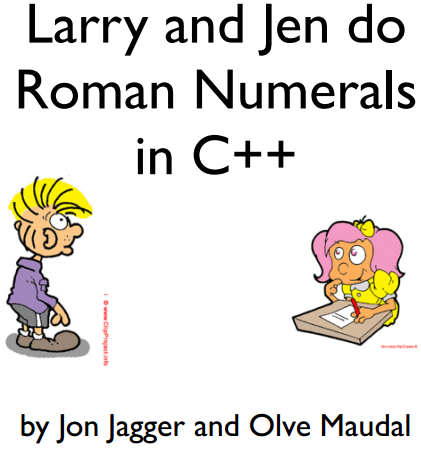Quick Q: Why does overloading int, int&&, and const int& make calling it ambiguous? -- StackOverflow
Today on SO:
Overload resolution between object, rvalue reference, const reference
Given all three functions, this call is ambiguous. [Why?]
int f( int ); int f( int && ); int f( int const & ); int q = f( 3 );

 Here's a nice lambda synopsis with some usage notes.
Here's a nice lambda synopsis with some usage notes. Yes, C++ is for beginning programmers too. This is a delightful introduction to C++ programming -- and with nice test-first style to boot.
Yes, C++ is for beginning programmers too. This is a delightful introduction to C++ programming -- and with nice test-first style to boot. Koenig's latest just went live at DDJ:
Koenig's latest just went live at DDJ: Andrzej's title is not only catchy, but completely correct (we politely disagree with your final disclaimer, sorry Andrzej): Deterministic lifetime with destructors is C++'s best feature, and very underappreciated.
Andrzej's title is not only catchy, but completely correct (we politely disagree with your final disclaimer, sorry Andrzej): Deterministic lifetime with destructors is C++'s best feature, and very underappreciated.  Koenig explains
Koenig explains